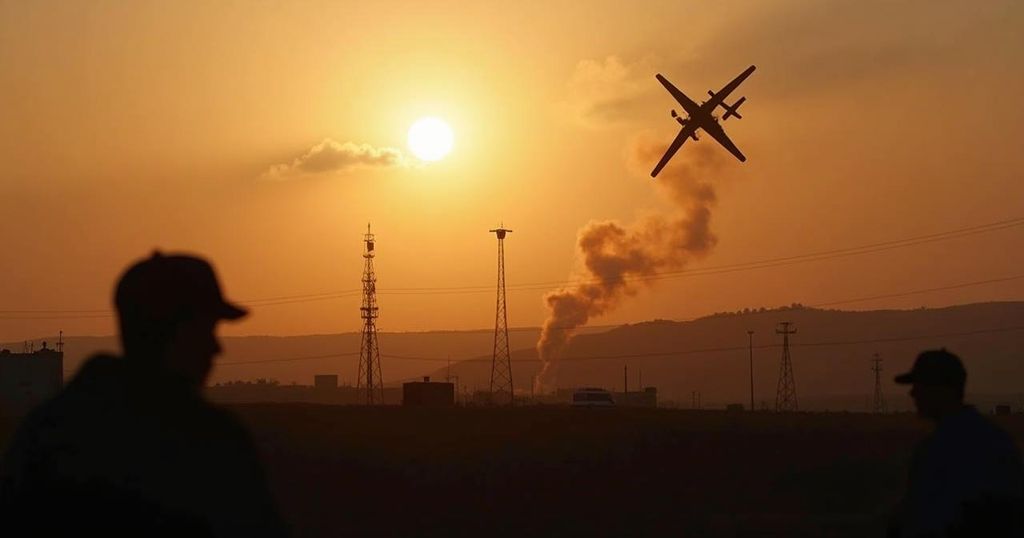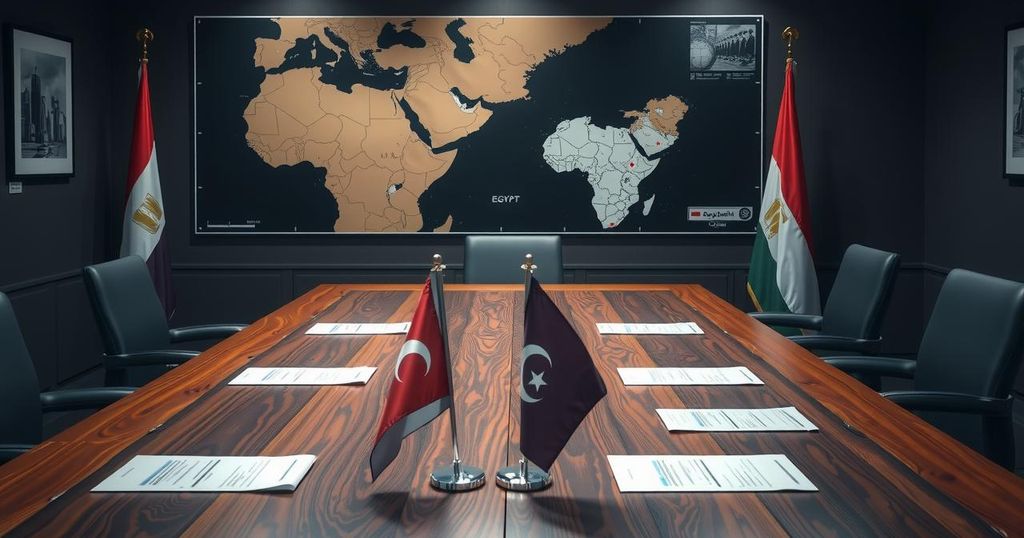Escalation of Conflict: Israeli Airstrike Cuts Key Highway Linking Lebanon and Syria
An Israeli airstrike has cut off a crucial highway linking Lebanon with Syria, exacerbating the humanitarian crisis amid ongoing conflict involving Hezbollah and Israel. Simultaneously, Iranian Foreign Minister Abbas Araghchi’s visit to Beirut emphasizes regional tensions, while Australia condemns Iranian support for Hezbollah amid rising violence.
An Israeli airstrike has severed a critical highway connecting Lebanon with Syria, according to Lebanon’s state-run National News Agency. This airstrike resulted in the closure of a vital route near the Masnaa Border Crossing, a transit point utilized by tens of thousands fleeing the conflict in Lebanon during the past fortnight. The escalation of hostilities follows Israel’s ground incursion into Lebanon, aimed at the Hezbollah militant group. Concurrently, Israeli strikes in Gaza have resulted in numerous casualties, including many children. The ongoing conflict has seen nine Israeli soldiers lose their lives in southern Lebanon amid reciprocal fire exchanges that have intensified since Hamas’s assault on Israel on October 7, 2023, which resulted in the deaths of 1,200 Israelis and the abduction of 250 others. Since Israel’s active military operation began, over 41,000 Palestinians have died in Gaza, with local health officials noting that approximately half of these casualties are women and children. Additionally, nearly 2,000 individuals have been reported killed in Lebanon, significantly escalating the humanitarian crisis. In a related development, Iranian Foreign Minister Abbas Araghchi visited Beirut to engage with Lebanese officials regarding the continuing violence between Israel and Hezbollah. The visit coincided with increased Israeli airstrikes across different regions of Lebanon, including the southern suburb of Beirut and the eastern Bekaa Valley. Notably, Iran has been a primary supporter of Hezbollah for years, supplying the group with both weaponry and financial aid. Amid these tensions, Australian Prime Minister Anthony Albanese has condemned remarks made by Iran’s ambassador who praised a deceased Hezbollah leader, asserting that supporting terrorist organizations such as Hezbollah is unacceptable. Albanese clarified that Australia maintains relations with Iran in its national interest, despite disagreements with the Iranian regime.
The ongoing conflict in the Middle East, particularly involving Israel, Hezbollah, and Hamas, has deep historical roots, marked by territorial disputes, sectarian tensions, and geopolitical dynamics. The recent military actions have exacerbated the humanitarian situation in both Israel and Lebanon, with significant casualties on both sides. Iran’s significant backing of Hezbollah complicates the issue further, as it plays a crucial role in supporting the organization that engages in hostilities against Israel. Such developments have implications not only for the regional stability but also for global diplomatic relations, as seen in the reactions from countries like Australia in response to the rising tensions and the remarks from Iranian officials within the context of the ongoing violence.
The latest Israeli airstrike on a major highway linking Lebanon to Syria marks a significant escalation in the ongoing conflict between Israel and Hezbollah, following a backdrop of increased violence since the Hamas attack in October. The humanitarian implications are dire, with thousands displaced and casualties soaring in both Lebanon and Gaza. Diplomatic efforts, including Iran’s engagement with Lebanese officials, underscore the complexities of the situation, while international reactions, such as from Australia, highlight the global ramifications of this regional conflict.
Original Source: abcnews.go.com




Post Comment